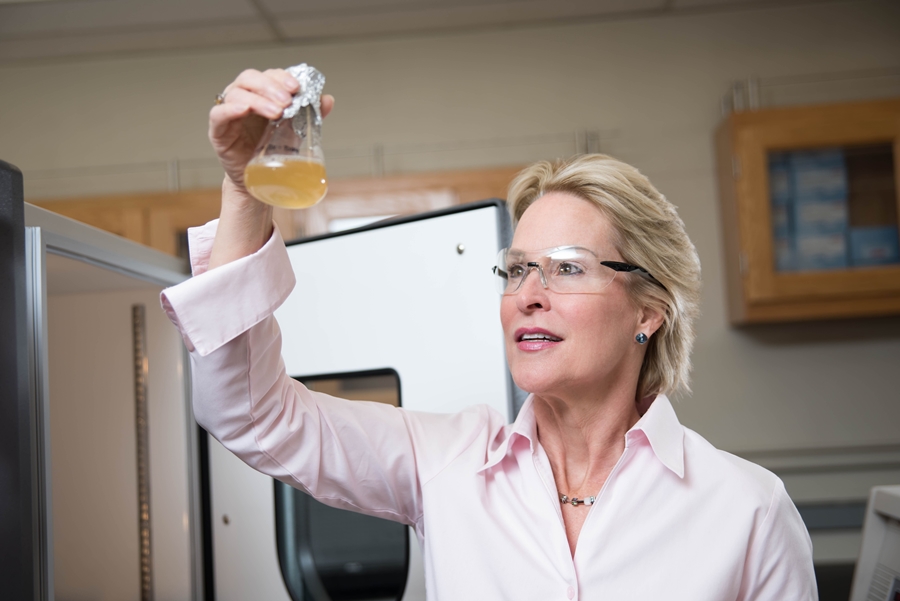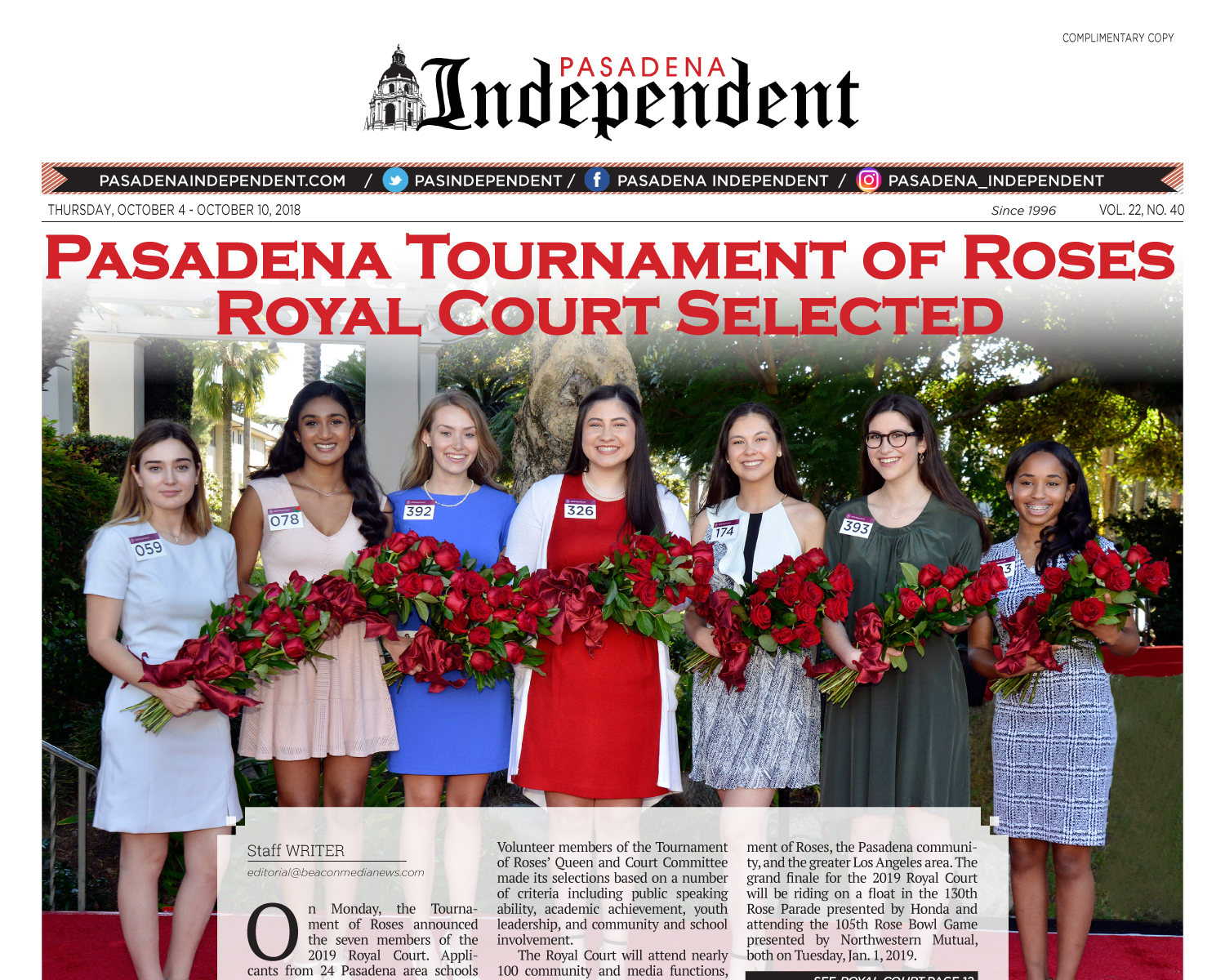
Frances H. Arnold, the Linus Pauling professor of chemical engineering, bioengineering and biochemistry, has won the 2018 Nobel Prize in Chemistry for “the directed evolution of enzymes,” according to the award citation. Directed evolution, pioneered by Arnold in the early 1990s, is a bioengineering method for creating new and better enzymes in the laboratory using the principles of evolution. Today, the method is used in hundreds of laboratories and companies that make everything from laundry detergents to biofuels to medicines. Enzymes created with the technique have replaced toxic chemicals in many industrial processes.
Arnold shares the prize with George P. Smith of the University of Missouri in Columbia, who developed a “phage display” method for evolving proteins, and Sir Gregory P. Winter of the MRC Laboratory of Molecular Biology in Cambridge, United Kingdom, who used phage display for evolving antibodies. One half of the prize, which comes with an award of nine million Swedish krona (about $1 million), goes to Arnold, with the other half shared by Smith and Winter.
Arnold received the call at a hotel in Dallas, Texas, at around 4 a.m. local time; she was scheduled to give a lecture on Oct. 3 at UT Southwestern, but had to reschedule to fly back to California. She says she was in a “deep, deep sleep” when awakened by the call. “I am absolutely floored. I have to wrap my head around this. It’s not something I was expecting.”
“Frances’s work on directed evolution is a beautiful example of an enterprise that has both deep scientific significance and enormous practical consequences,” says David A. Tirrell, Caltech’s provost, the Carl and Shirley Larson provostial chair, and the Ross McCollum-William H. Corcoran professor of chemistry and chemical engineering. “Through decades of commitment to exploring a powerful idea, Frances has transformed the fields of protein chemistry, catalysis, and biotechnology. She has changed the way we think about things and the way we do things.”
“Directed evolution has transformed how we make proteins and how we think about new protein catalysts,” says Jacqueline K. Barton, Caltech’s John G. Kirkwood and Arthur A. Noyes professor of chemistry and the Norman Davidson leadership chair of the division of chemistry and chemical engineering. “Through this work, she has broadened the repertoire of nature’s catalysts.”
“Life—the biological world—is the greatest chemist, and evolution is her design process,” says Arnold. “I may not be the best chemist but I do appreciate evolution.”
Arnold was born on July 25, 1956, in Pittsburgh, Pennsylvania. She received her undergraduate degree in mechanical and aerospace engineering from Princeton University in 1979 and her graduate degree in chemical engineering from UC Berkeley in 1985. She arrived at Caltech as a visiting associate in 1986 and was named assistant professor in 1987, associate professor in 1992, and professor in 1996. In 2000, she was named the Dick and Barbara Dickinson Professor of Chemical Engineering, Bioengineering and Biochemistry; she became the Linus Pauling professor in 2017. She became the director of the Donna and Benjamin M. Rosen Bioengineering Center at Caltech in 2013.
Directed evolution works in the same way that breeders mate cats or dogs to bring out desired traits. To perform the method, scientists begin by inducing mutations to the DNA, or gene, that encodes a particular enzyme (a molecule that catalyzes, or facilitates, chemical reactions). An array of thousands of mutated enzymes is produced and then tested for a desired trait. The top-performing enzymes are selected and the process is repeated to further enhance the enzymes’ performances. For instance, in 2009, Arnold and her team engineered enzymes that break down cellulose, the main component of plant cell walls, creating better catalysts for turning agricultural wastes into fuels and chemicals.
A number of additional enzymes produced through directed evolution are now used for a host of products, including biofuels, agricultural chemicals, paper products, and pharmaceuticals. For example, the method led to a better way to produce a drug for treating type 2 diabetes.
More recently, Arnold and her colleagues used directed evolution to persuade bacteria to make chemicals not found in nature, including molecules containing silicon-carbon or boron-carbon bonds, or bicyclobutanes, which contain energy-packed carbon rings. By using bacteria, researchers can potentially make these chemical compounds in “greener” ways that are more economical and produce less toxic waste.
“My entire career I have been concerned about the damage we are doing to the planet and each other,” said Arnold when she won the 2016 Millennium Technology Prize, granted by the Technology Academy Finland. “Science and technology can play a major role in mitigating our negative influences on the environment. Changing behavior is even more important. However, I feel that change is easier when there are good, economically viable alternatives to harmful habits.”
Arnold was the first woman to receive the 2011 Charles Stark Draper Prize from the National Academy of Engineering (NAE). She is among the small number of individuals, and the first woman, elected to all three branches of the National Academies: the NAE (2000), the National Academy of Medicine (2004; it was then called the Institute of Medicine), and the National Academy of Sciences (NAS; 2008). She received the 2011 National Medal of Technology and Innovation and was inducted into the National Inventors Hall of Fame in 2014. She has won numerous other awards, including the 2017 Sackler Prize in Convergence Research from the NAS and the Society of Women Engineers’ 2017 Achievement Award.
She is a member of the American Academy of Arts and Sciences and the American Philosophical Society, and is a fellow of the American Association for the Advancement of Science and the Royal Academy of Engineering.
“Frances’s methods have been adopted by scientists and engineers around the world, and many more have been inspired by her vision and her impact on chemical science and technology,” says Tirrell. “Her extraordinary accomplishments reflect the unconventional research environment at Caltech, where scholars are encouraged to dream, to take risks, and to venture beyond the constraints of disciplinary boundaries.”
The 2018 Nobel Prize in Chemistry is the 39th Nobel Prize awarded to Caltech faculty and alumni. Other Caltech faculty with Nobel Prizes include: Kip S. Thorne (BS ’62) and Barry C. Barish, winners of the 2017 Nobel Prize in Physics with Rainer Weiss; Robert Grubbs, winner of the 2005 Nobel Prize in Chemistry with Yves Chauvin and Richard R. Schrock; David Politzer, recipient of the 2004 Nobel Prize in Physics with David J. Gross and Frank Wilczek; Rudy Marcus, sole winner of the 1992 Nobel Prize in Chemistry; and David Baltimore, winner of the 1975 Nobel Prize in Physiology or Medicine with Renato Dulbecco and Howard M. Temin.






